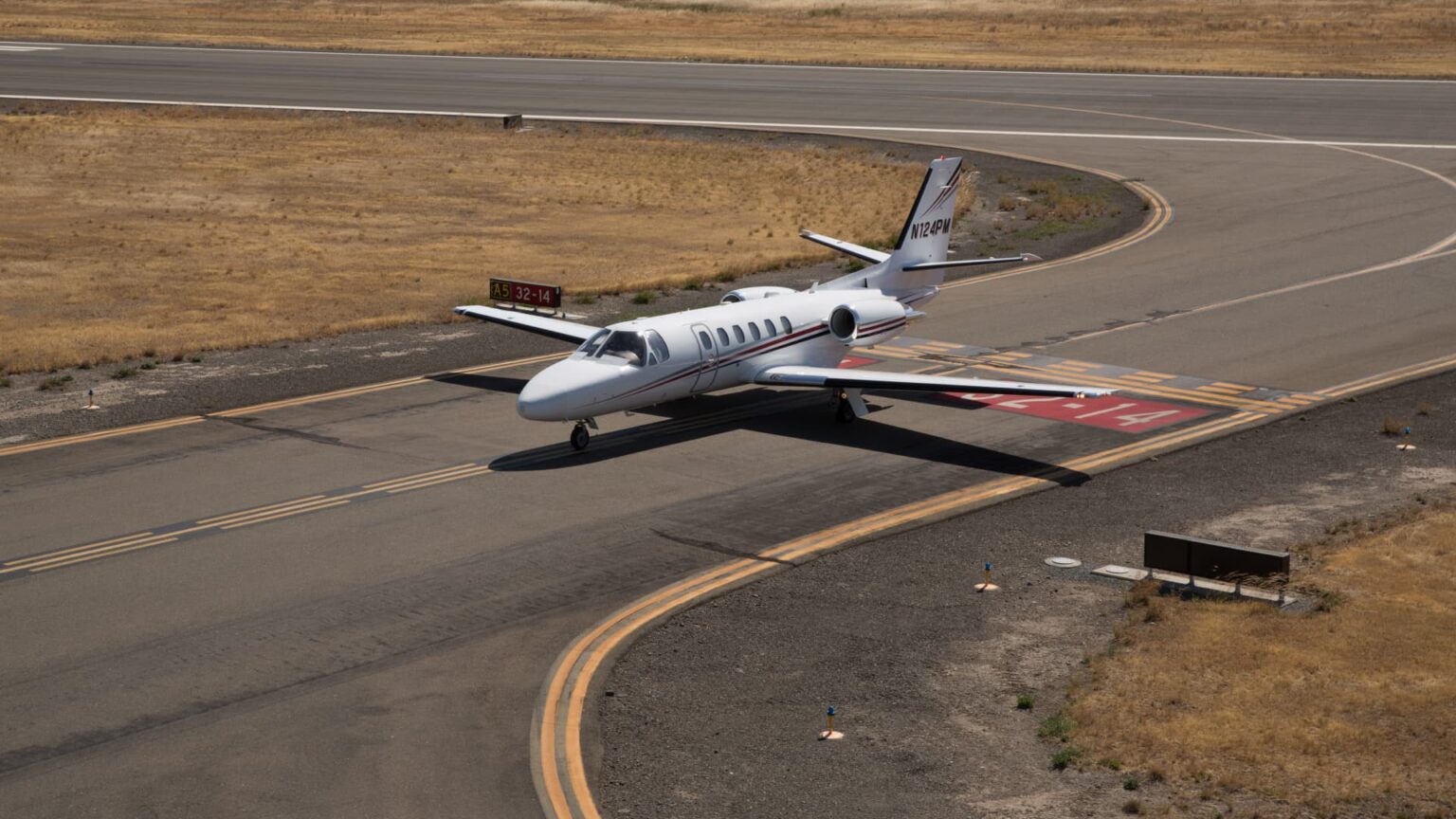A Cessna Citation jet aircraft is viewed at Charles M. Schulz Sonoma County Airport in this aerial photo taken on June 1, 2021, near Healdsburg, California.
George Rose | Getty Images
With consumer confidence tumbling, demand for commercial air travel has waned. Even deep-pocketed travelers are pulling back, according to Barclays’ latest survey of business jet broker-dealers and financiers.
Customer interest in buying business jets has fallen by 49% since March, according to the survey, which was conducted from April 9 to 15 and had 65 respondents.
The Barclays Business Jet Indicator survey, published last week, uses five metrics, including 12-month outlook and pricing, to assess the state of the market. All but one metric (inventory levels) declined from mid-March to mid-April. As a result, the composite score fell from 52 to 40.
The percentage drop recorded in the most recent survey, at 23%, is the largest recorded by Barclays since the Covid pandemic. Barclays analyst David Strauss told CNBC that he expected sentiment to weaken but not to such a large degree.
A composite score in the low 40s indicates the market is slowing, according to Barclays.
The indicator correlates with airplane manufacturers’ book-to-bill ratio, a key measure of their financial health. A score of 40 indicates that dollar value of manufacturers’ new orders is lagging about 10% behind the orders it is currently fulfilling, Strauss said.
Survey respondents told Barclays that clients had put purchases on hold, fearing the impact of tariffs not only on the aircraft market but also their operating businesses.
Nearly half (46%) of participants said that customer interest in buying business jets had deteriorated since March. Forty-four percent said customer interest stayed the same and only 10% reported it had improved.
When asked specifically about the effect of tariffs on new aircraft demand, 93% of respondents said it would have a negative impact on demand, with a majority expecting the impact would be significant. Only 7% said they believed there would be no impact.
As for used jets, 67% of respondents were still pessimistic, expecting a significant or minor negative impact on demand. A little under a third (27%) expected demand for used jets to increase by some degree.
However, pending legislation may give business jet manufacturers a shot in the arm.
Both the Senate and House of Representatives have adopted a budget resolution that aims to extend the Tax Cuts and Jobs Act. A key provision of the TCJA allowed businesses to immediately deduct 100% of eligible equipment purchases rather than spreading out the deduction over time. The rate has dropped 20% annually since 2023 and was set to phase out in 2027.
Republican lawmakers now have a path to raise the rate back to 100% and allow retroactive deductions, which President Donald Trump called for in March. If they succeed in bringing back 100% bonus depreciation, private aircraft would become much more attractive from a tax perspective.

